Nadia's Initiative Endorses Joint NGO Statement on Day of International Criminal Justice
Open Letter to Iraqi Authorities and the International Community on the Occasion of 17 July 2021, Day of International Criminal Justice
Re: Criminal accountability for Atrocity Crimes Against Civilians Committed During the Da’esh/ISIL Conflict in Iraq
On the Day of International Criminal Justice, Iraqi NGOs allied in the Coalition for Just Reparations (C4JR) and their partners respectfully encourage Iraqi authorities at both federal and regional level as well as the international community to redouble their efforts to establish a survivor-friendly criminal accountability mechanism with jurisdiction over international crimes committed by the so-called Islamic State in Iraq and the Levant (ISIL) in Iraq.
Since 2003, Iraq has suffered internecine conflict and state collapse, degrading a once rich cradle of ancient ethno-religions and cultures. During the ISIL created conflict in Iraq, at least 30,000 civilians were killed, 55,000 injured and more than 3 million were displaced. Ethno-religious communities including Christians, Yazidis, Sabean-Mandaeans, Turkmen, Kaka’i, and Shabaks were particularly targeted and faced existential threats. ISIL waged a genocidal campaign against these minorities across the Sinjar region and the Nineveh plains seeking to erase their presence in Iraq altogether.
We welcome the efforts already taken to defeat ISIL, as well as progress made towards collecting evidence to prosecute ISIL suspects for atrocity crimes in Iraq, notably by the UN Investigative Team to Promote Accountability for Crimes Committed by Da’esh/ISIL (UNITAD) established through UN Security Council Resolution 2379. We also welcome the enactment of the Yazidi Female Survivors Law (YSL) that will deliver long-awaited relief not only to Yazidi women but also other survivors belonging to communities targeted by ISIL.
UNITAD has found “clear and convincing evidence that genocide was committed by ISIL against the Yazidi as a religious group”, and Iraqi lawmakers explicitly recognized in Article 7.1 of the YSL that ISIL committed genocide and crimes against humanity against Yazidis, Turkmen, Christian and Shabak minority groups.
Despite these findings, however, no tangible progress has been made in the past seven years to set up a court in Iraq to prosecute those responsible for these horrific crimes.
The recent ruling of the Federal Supreme Court of Iraq, in effect barring establishment of a special tribunal for ISIL crimes in KRI, has had a detrimental effect on survivors and their families. Members of the Yazidi Survivors Network, a program run by Yazda and meant to empower ISIL survivors, stated:
“It's obvious that governmental authorities and decision makers don't care about our feelings. They don't imagine how much we, as survivors, desperately need a little hope to get justice, the justice, we deserve and want to have. We have heard about the Kurdistan Regional Government draft law to hold ISIL accountable for the crimes they committed against many innocent people from different religions, including us the Yazidi survivors. A short time later, we heard that the Iraqi Federal government rejected that draft.
Today, we as survivors don't know anything about the intentions of both governments and we don't know if and how they will move the justice process forward. The only thing we know is that we don't want any decisions about survivors to be taken without consulting us first and we don’t want political tensions to affect the chance of having justice for all ISIL survivors."
Though mindful of Iraq´s negative experience with special courts, which found expression in Article 95 of the Iraqi constitution, Iraqi civil society reiterates that dealing with the past is essential for Iraq´s peaceful future. Egregious atrocities committed during ISIL´s brutal reign of terror in Iraq cannot be dealt with in the absence of accountability for perpetrators. Only when survivors and their families see justice done, they may find closure.
To that end, we the undersigned organizations, implore the Iraqi authorities to now show leadership, to search and find a way to set up a court in Iraq, in consultation with survivors and civil society, that will provide justice to survivors by calling what has transpired by its name: torture, war crimes, crimes against humanity and genocide.
Sincerely Yours,
[C4JR member organizations and partners]
ASUDA
Better World Organization for Community Development (BWO)
Bishkoreen Organization
CAPNI for Humanitarian Aids in Iraq.
Civil Development Organization “CDO”
Dak Organization
Emma
Eyzidi Organization for Documentation
Ghasin Alzaiton
Hammurabi Human Rights Organization (HHRO)
Harikar
HÁWAR. help
Iraqi Educational Association AL Basra
Iraqi Institution for Development (IID)
Jinda Organization
Justice Organization for Minority Rights (JOMR)
Methra Organization
Nadia’s Initiative (NI)
National Centre for Human RIghts (NHCR)
Nisha Organization
Peace and Freedom Organization
The Free Yezidi Foundation
The Jiyan Foundation for Human Rights
The Lotus Flower
The Observer Human Rights Center OHRC
To Reconcile Organization (TRO)
Turkmen Rescue Foundation
Women Leadership Institute (WLI)
Women Legal Assistance Organization (WOLA)
Yazda including the Yazidi Survivors Network (YSN)
[Other Iraqi NGOs]
Al-Rakeezeh Foundation for Relief and Development (RRD)
[International Partners]
Fight for Humanity
Genocide Watch
Global Centre for the Responsibility to Protect
Peace Winds Japan -Iraq Mission
Center for Victims of Torture (CVT)
